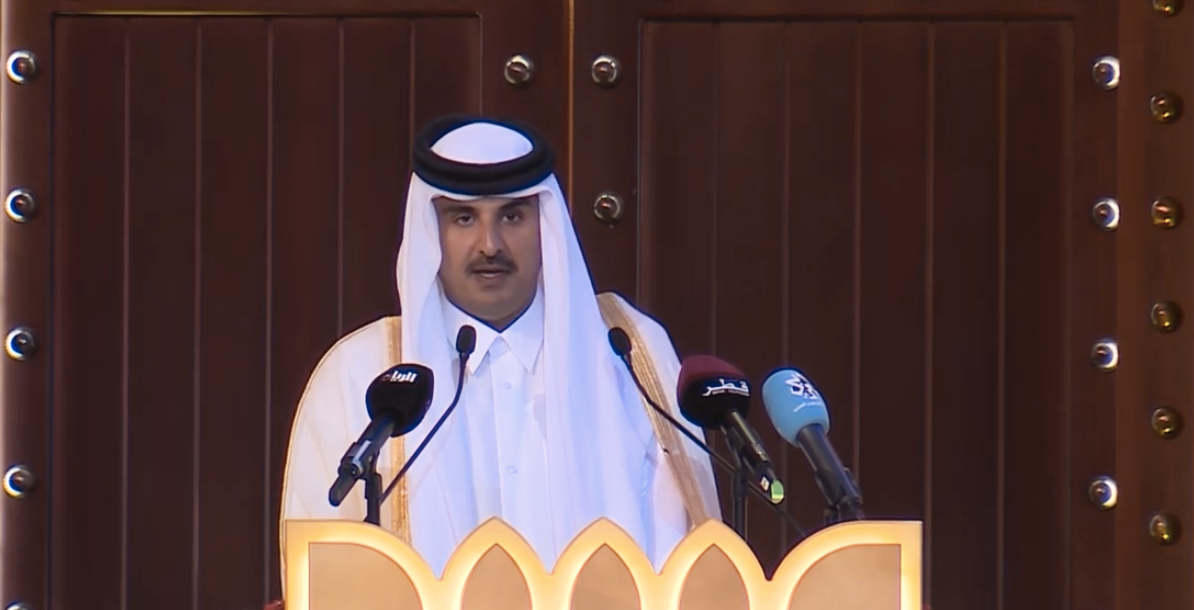Elon Musk just made what could only be described as a bafflingly poor decision. He’s chosen to openly embrace the Chinese government, even while tensions between the United States and China are at an all-time high.
It would seem that Musk is entirely oblivious to the implications of his actions, purposely undermining the United States, or just doesn’t care.
On August 29, 2019, the billionaire business magnate traveled to China to open this year’s World Artificial Intelligence Conference. The only American at the event, Musk was hosted by both the Chinese Academy of Science and the Chinese Academy of Engineering—two of China’s premier regime-run entities.
At the Shanghai summit, Musk debated Jack Ma, the co-founder of Alibaba on the state and potential of artificial intelligence. According to a Chinese media outlet, Musk is also set to present the first China-made Tesla Model 3 at the conference.
Whether intentional or not, Musk’s actions are a serious affront to America.
Musk’s trip to Shanghai came amid an escalating trade war between the U.S. and China. Both nations recently announced another round of retaliatory tariffs against one another, further escalating the ongoing economic conflict. President Trump, for his part, has drawn the battle lines, proclaiming that the U.S. should be prepared to cut ties with China in order to triumph in the trade war. But apparently, Elon Musk has other ideas.
As an enormously influential businessman, Musk surely must understand that his actions carry weight. As it stands, his presence in China communicates that President Trump’s proclamation against China should not be taken seriously. And his decision to unveil the first China-made Tesla Model 3 directly undercuts Trump’s message that American industries can and should transition away from their dependence on Chinese markets.
It would seem that Musk is entirely oblivious to the implications of his actions, purposely undermining the United States, or just doesn’t care. Unfortunately, none of these explanations reflect well on the businessman.
[caption id="attachment_180352" align="aligncenter" width="1920"] SpaceX[/caption]
SpaceX[/caption]
Musk’s apparent proclivity toward Chinese business—or at least his apathy toward American interests—is certainly troubling. That’s especially the case given his company’s role as a U.S. defense contractor. SpaceX, Musk’s private aerospace firm, serves to help ensure America’s national security interests in space.
Musk wasn’t looking out for the United States’ national security; he was only safeguarding his own interests.
And which nation poses the greatest threat to the United States in that domain? China, of course. The Chinese government views space as the next warfighting arena and is making great strides in its space program, all in an attempt to outpace the United States. In the upcoming space race, America needs the very best technology to combat the Chinese threat.
Currently, the Department of Defense (DoD) is working to ensure America’s continued technological superiority through the National Security Space Launch (NSSL) program, an initiative created to ensure America’s continued access to space. By contracting American aerospace firms to produce viable domestic rockets, the DoD seeks to deter foreign influence over America’s space program. In effect, the NSSL program’s partnerships with the nation’s best aerospace companies will pave the way for the United States’ continued spacefaring dominance.
But, given Musk’s apparent disregard for America’s interests, should SpaceX be trusted with such an essential responsibility? While most would say the answer is clearly no, Musk seems to disagree. When SpaceX failed to receive launch contracts under the first phase of the program—in which several other firms were selected—Musk sued the U.S. Air Force for its decision to exclude his company. The businessman failed to consider the implications such a lawsuit would have on the program, as well as how it would affect America’s ongoing space race with China. Musk wasn’t looking out for the United States’ national security; he was only safeguarding his own interests. Now, the Democrats are doing the exact same thing—protecting SpaceX at the expense of the NSSL program.
Under the Democrats’ version of the National Defense Authorization Act, competitive standards for the NSSL program would be weakened, and the DoD would be forced to select additional contractors. This change, opposed by the president, Senate Republicans, and the American defense community, would effectively mandate SpaceX’s inclusion in the program. Considering recent events, that cannot be allowed to happen.
Ultimately, Musk’s recent trip to China has made his intentions clear. Musk prioritizes his relationship with Chinese businesses more than he does his obligation to America’s national security. That’s an affront our defense community simply cannot tolerate. When selecting aerospace firms for the NSSL program, the DoD must trust that the companies selected by the Air Force initially have the best interests of the United States in mind.





